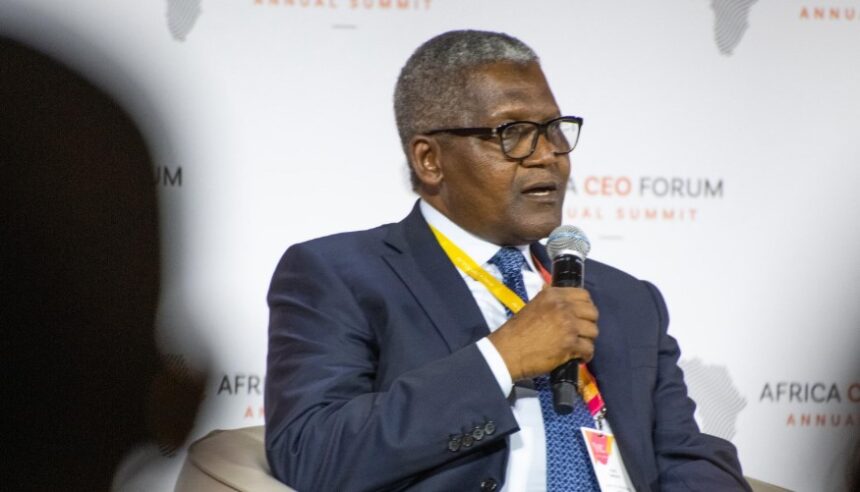The Dangote Petroleum Refinery’s recent price reduction for Premium Motor Spirit (PMS), also known as petrol, has sent ripples through the Nigerian fuel market, potentially displacing importers and reshaping the industry landscape. The refinery slashed its ex-depot price by N30 to N835 per litre, marking the third price adjustment in six weeks and a total reduction of N45 from its initial offering. This move has created a significant price differential between locally refined and imported petrol, putting importers at a considerable disadvantage.
The landing cost of imported petrol currently stands at N868.33 per litre, N33.33 higher than Dangote’s revised ex-depot price. Considering Nigeria’s estimated daily PMS consumption of 50 million litres, this price disparity translates to substantial potential losses for importers. Calculations reveal that importers could lose an average of N466.62 million daily and a staggering N13.998 billion monthly if they are forced to compete with Dangote’s pricing. This represents a significant financial blow, although it is a considerable reduction from the estimated N2.5 billion daily loss experienced in March due to market fluctuations.
The price war initiated by Dangote Refinery is driving a shift in Nigeria’s fuel supply dynamics. Petrol imports have already declined significantly, from 44.6 million litres per day in August 2024 to 14.7 million litres as of April 13, 2025. This decline is attributed to the resurgence of local refining capacity, including the phased restart of the Port Harcourt Refining Company and the increasing output from modular refineries. The reduced reliance on imported fuel reinforces the growing influence of local producers like Dangote Refinery in shaping market prices.
The implications of this price war extend beyond immediate financial losses for importers. Marketers with existing stocks of petrol purchased at higher prices now face the dilemma of selling at a loss to remain competitive. This has created instability in the market, raising concerns about the arbitrary nature of price adjustments and the potential for larger players to dominate the market. Stakeholders, including the Petroleum Products Retail Outlets Owners Association of Nigeria (PETROAN), have called for regulatory intervention to ensure fair competition and price stability, preventing any single entity from wielding excessive market power.
While Dangote’s price cuts benefit consumers with lower pump prices, they also raise questions about the sustainability of such aggressive pricing strategies and the potential long-term consequences for the industry. The Crude Oil Refinery Owners Association of Nigeria (CORAN) has predicted the eventual demise of fuel importers if they fail to adapt to the changing landscape and embrace local refining trends. This suggests a potential future where local refineries dominate the market, potentially altering the dynamics of competition and supply chains.
In response to Dangote’s price reduction, the Nigerian National Petroleum Company Limited (NNPC) has also lowered its PMS price to N935 per litre, still higher than Dangote’s offering but reflecting a downward trend in the market. This competitive pricing environment, while beneficial to consumers in the short term, requires careful monitoring and regulation to ensure long-term market stability and prevent potential monopolies. The current situation highlights a critical juncture in Nigeria’s petroleum industry, with local refining taking center stage and potentially reshaping the industry’s future.














